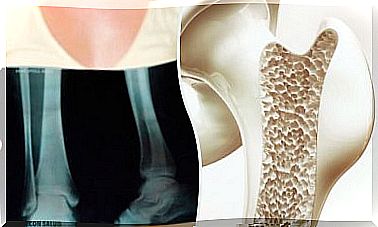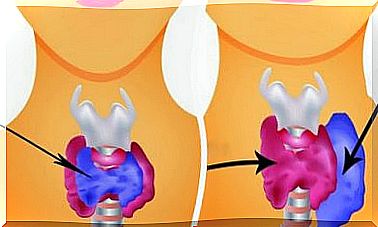7 Symptoms Of Stress That You Should Not Ignore
Stress is a set of alterations that occur in the body in external conditions. Thus, a series of physiological and psychological reactions are triggered in the body that prepare us to defend ourselves. It originates from the survival instinct that all human beings have and, in turn, organs such as the brain and the heart are involved.
This produces a set of symptoms that can disturb the emotional balance of the person. Why? Because, through physical, mental and behavioral resources, our body seeks to face situations that represent a threat or challenge.
While sometimes there is only a response to changes in the environment, in many cases it can become a serious problem due to the recurrence of your symptoms. Most worryingly, it has become a relatively common disease in the Western world. But despite this, many of its signs are overlooked and it ends up becoming a chronic disorder in the end.
For this reason, it is essential to know how it manifests itself and what are those bodily reactions that allow us to identify it. Find out!
1. Headaches

A large number of cases of recurrent headaches in the adult population are related to continuous exposure to stressful situations. This emotional state causes a constriction of the blood vessels, which decreases the flow of blood to the brain and increases the tension in the head.
In fact, when it manifests itself chronically, it is accompanied by sensitivity to light, irritability and visual problems.
2. Digestive problems
Digestive symptoms are often ignored as signs of stress, as most often associate them with gastrointestinal problems or poor eating habits. The truth is that these two disorders are closely linked, since the digestive system has a strong connection with neurotransmitters in the brain. In fact, the intestine is called the “second brain”.
- The excessive production of cortisol, that is, the stress hormone, influences the increase in acid secretions and problems such as heartburn and reflux.
- It also increases the recurrence of abdominal pain and, in some cases, can lead to nausea and vomiting.
3. Excessive hair loss
It is normal for hair to fall out to some extent every day. However, due to stress, excessive loss and growth difficulties may occur.
The hormonal alterations that remain under this emotional state can affect circulation in the scalp. Also, hinder the process of oxygenation and nutrition of the hair strands.
Stress baldness can affect all of the hair, although sometimes only certain areas. The truth is that the volume decreases alarmingly and, although some products manage to counteract it, it is difficult to control it completely until this problem is alleviated.
4. Lower back pain
Low back pain is common in those whose work and lifestyle involve staying too long in the same position. These are caused by muscle tension and reduced circulation, usually related to poor posture.
However, stress can also be one of its underlying causes, since it influences the increase in the sensation of stiffness and pain.
5. Skin diseases

Stress is an overlooked cause of many skin problems that affect beauty. Although these usually have their origin in external factors such as the sun or toxins, they are also related to the body’s submission to this emotional state.
Its lack of control weakens the dermis, making it more sensitive to external aggressions. Due to this, this disorder can manifest with problems such as:
- Eczema
- Psoriasis
- Irritation and redness
- Allergies and flare-ups
6. Swollen hands
Poor stress management can become a trigger for inflammatory responses in the body. Noticing swollen, even sore hands, for no apparent reason, is an indication of episodes of stress that have not been controlled.
Although it is necessary to analyze whether this symptom may be the sign of disorders such as arthritis, a large number of cases disappear as this emotional disorder is treated.
7. Changes in appetite
While some stressed people lose the desire to eat, others feel a constant craving for high-calorie foods.
This is due to imbalances in the nervous system, which causes the brain to respond with these signals. It is essential to pay close attention to it, since it can cause nutritional deficiencies or, otherwise, overweight and obesity.
Can you identify these signs of stress? If so, take the necessary measures to control it as soon as possible. Although it is normal to suffer from it, its treatment is decisive to avoid health problems of greater care.








